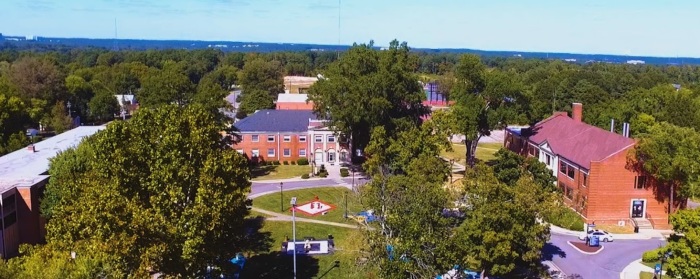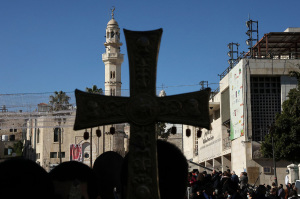Episcopal Church-affiliated university reinstated by accreditation group amid financial woes

An accreditation group has reinstated a historically African American university affiliated with the Episcopal Church that is facing financial difficulties, though it remains on probation.
Saint Augustine's University in Raleigh, North Carolina, announced Monday that the Southern Association of Colleges and Schools Commission on Colleges had reversed last year's decision to remove the academic institution from its membership list.
An arbitration committee appointed by SACSCOC issued a unanimous decision for the reversal. However, SAU will still be under the sanction of probation for cause as it continues to work to resolve financial issues.
"The SACSCOC arbitration committee's decision serves as a pivotal moment for SAU's redemption and renewal," said SAU Board of Trustees Chair Brian Boulware.
"The unanimous reversal by the arbitration committee rightfully corrects the injustice inflicted upon SAU by SACSCOC's initial ruling and underscores the university's steadfast commitment to excellence and growth."
SAU was founded by the Episcopal Diocese of North Carolina in 1867 for the education of freed slaves following the Civil War. Today, the university sits on a 105-acre campus just north of downtown Raleigh and is accredited to award baccalaureate and master’s degrees.
SAU has faced financial difficulties in the last several years. In May, the U.S. Department of Labor said it would investigate the university amid reports that employees had gone multiple pay periods without paychecks.
The university faced issues with accredidation from 2014 to 2018 when it was placed on accreditation probation but later regained full accreditation, WRAL notes. The outlet also reports that the IRS filed a $7.9 million lien against the university for taxes dating back to the end of 2020.
SAU Interim President Marcus H. Burgess said the "reinstatement acknowledges SAU's relentless dedication to upholding academic standards and ensuring a thriving educational environment for our students."
Renee Pellom, an education expert on the accreditation of academic institutions, says the SAU reversal decision is abnormal.
"It's very rare actually to see an institution reinstated from a drop status that has been pronounced by the accrediting agency," Pellom told the Durham-based ABC News 11.
"I think, quite frankly, we don't know where this is going to go. I have no doubt that the staff is hard at work, you know, working to put in place those kinds of things that need to be done so that they can satisfy SACSCOC and, of course, all the requirements that are established and in the criteria and their policies."
Last December, SACSCOC stated that trustees voted to remove SAU from membership as an accredited institution over concerns about financial stability.
SAU launched the Falcon Pride Initiative Fundraising Campaign in February to help preserve its official accreditation. Later that month, an appeals committee upheld the earlier ruling.
In response to ongoing financial and accreditation issues, SAU began to move the bulk of its classes from in-person to online, with the measures taking effect at the beginning of April.
"While we strive to maintain the quality of education, it is also our utmost responsibility to ensure the safety, well-being, and dignity of the SAU community, especially our students," said Burgess in a statement released in March regarding the move.
Other Christian colleges have faced accreditation issues related to financial struggles in recent years.
Last July, Alliance University in New York, affiliated with the Christian and Missionary Alliance and previously known as Nyack College, announced that it would close after losing its accreditation with the Middle States Commission on Higher Education.
Last August, the Christian liberal arts institution King's College of New York City lost its accreditation amid a funding shortfall.





























